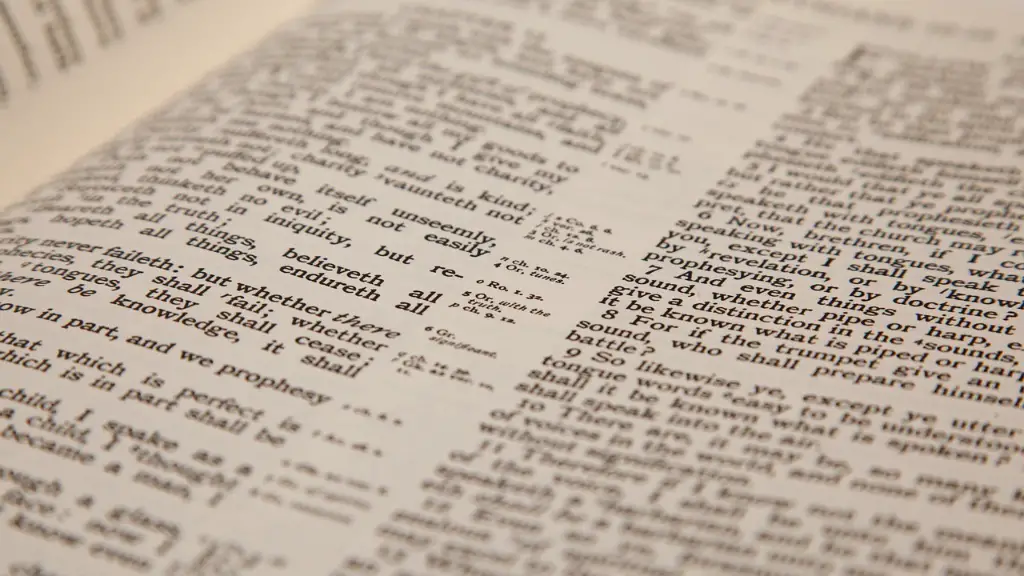What is Scripture?
The Bible is an ancient collection of sacred texts of Christianity, spoken and written in many languages over thousands of years. It contains every story, tradition and revelation from the origin to the end of the faith. It is usually divided into two parts – the Old Testament (OT) and the New Testament (NT). The OT is made up of 39 books, mostly written by prophets and kings of Israel, and the NT is made up of 27 books, primarily written by the early followers of Jesus.
The scriptures contained in the Bible are seen by many as revealed truths from God or gods, and have been used to shape moral and spiritual beliefs. From the perspective of believers, scripture is not just words on a page but is considered a living source of illumination and insight. The accuracy of the Bible is a question of both academic and existential importance, as it’s not just a book but an entire way of life that has been affected by beliefs formed from its teachings.
Accuracy of the Bible
The Bible has caused debate and divided communities throughout history, and its accuracy has long been contested. Some argue that the Bible has been copied and translated for centuries and is therefore untrustworthy, while others claim that it is the literal Word of God and thus infallible.
The answer may lie somewhere in the middle. Despite being an ancient text, modern authors and scholars accept that it is an accurate account of the stories and events it covers. It’s still a living document, filled with lessons and multiple interpretations.
However, there are discrepancies between translations and interpretations. People of different faiths and cultures may each interpret something completely different. This is why we must trust tradition, faithful readers, and unbiased sources as well as our own judgements to discern what is true.
Historical Accuracy
The Bible has been studied and scrutinized intensely since its inception and its historical accuracy has often been questioned. While many aspects of the Bible have been shown to have strong historical evidence, some experts feel certain aspects do not have enough evidence to confirm them.
For example, some of the stories in the Bible involving supernatural elements or miracles could be disputable. Some argue that these events could be seen as symbolic rather than literally true. Other aspects of the Bible, such as wars and kings, have withstood the test of time. Historical records have shown that some of these events described in the Bible did indeed take place
Archaeological and Scientific Accuracy
The Bible has also been tested by modern archaeology and science. Over the years, archaeological discoveries have largely proved the Bible’s accuracy in many ways. For instance, some of the places and artifacts mentioned in the Bible were discovered to have existed or even still exist today.
However, the Bible is still a contested document when it comes to scientific accuracy. Biblical passages written thousands of years ago may not adhere to the understanding of science today. To still be able to trust the Bible, people who accept scientific wisdom must also use context to understand the text.
Guided by Faith
Believers and non-believers alike must remember that, regardless of the archaeological and scientific evidence

